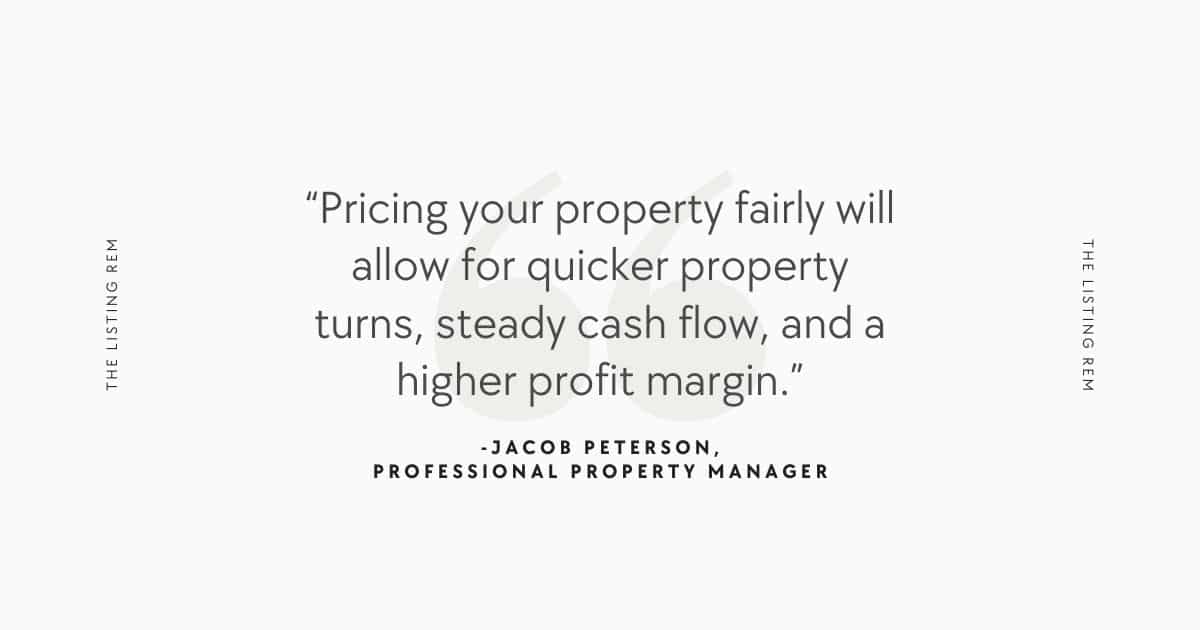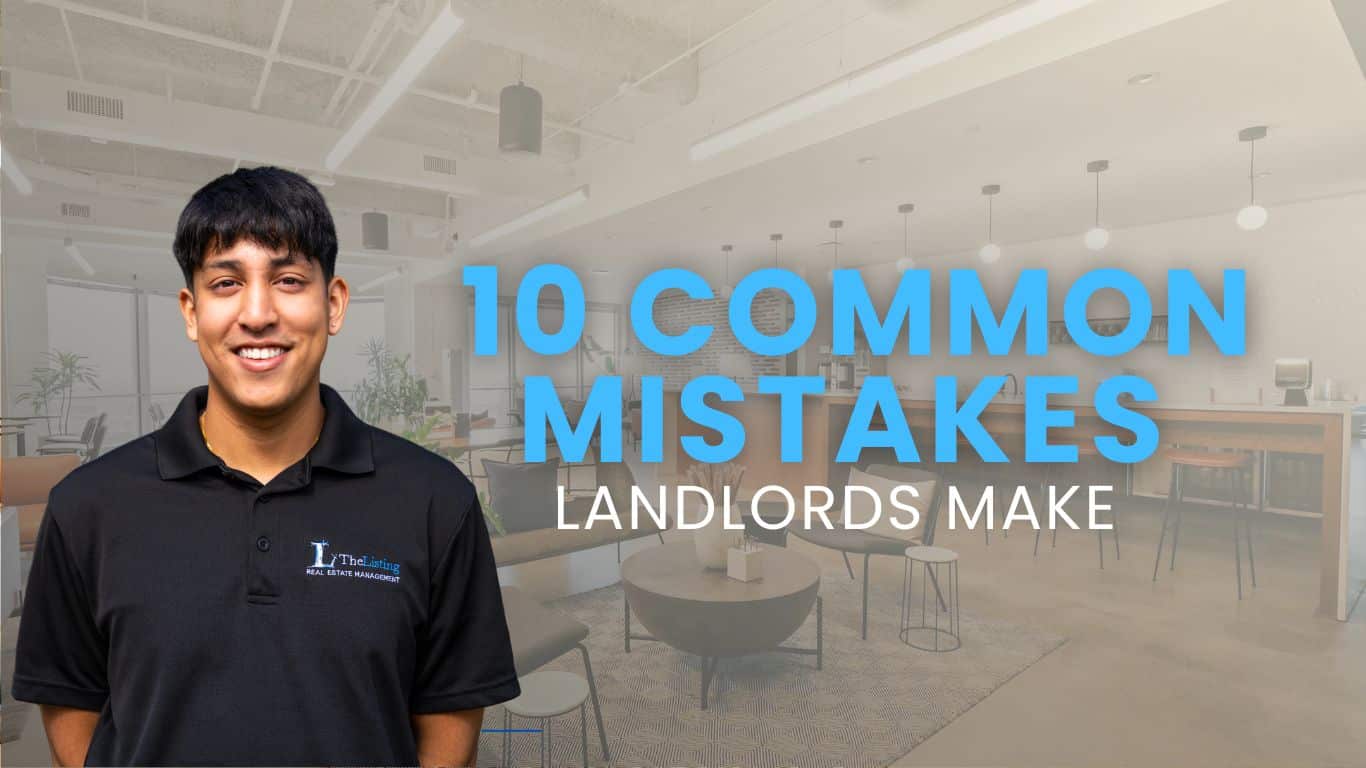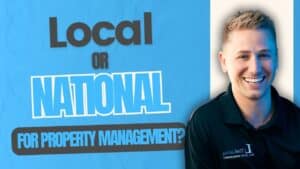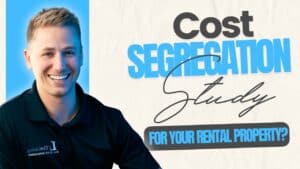If you want to avoid the stereotypical bad landlord reputation, keep reading. We’ve all heard tales of the horrible landlord, the one that takes two weeks to fix the refrigerator, the one that prohibits even the cutest of furry friends, or the one who flat-out ghosts their tenants. As a rental property owner, your success can start by proving to be a good landlord, one that’s favored by tenants and provides a comfortable living environment.
But being a landlord isn’t easy— there are so many factors that go into owning and operating a rental property, attracting and retaining tenants, and driving a steady return on investment. If you’re interested in learning how to be a standout landlord, here are 10 common mistakes landlords make and how to avoid them.
1) Choosing Vacancy Over a Price Adjustment
There are a variety of factors that can affect your rental property experience, one of which is pricing your property correctly. Many landlords expect to get top dollar for their rental property, pricing it above market value and letting it sit empty for months at a time. While charging a premium price is every landlord’s dream, the current rental market is affected by a decline in both competition and rental rates.

There is a big misconception that adjusting your rental price is going to eat into profits and return on investment, however, vacancies are actually a much bigger expense than price adjustments. Most property owners prefer not to adjust the price because they believe the property can be rented for more. It is unlikely that your property will rent for the initial higher price if it has not rented or gained traffic within 20 or more days on market. Rather than holding out hope for the high price and continuing to take financial losses, a price adjustment will increase the success of your tenant search and allow you to continue earning a steady rental income.
2) Trying to Rent the Property Furnished
From our years of experience as rental property managers, I can tell you that furnished long-term rental properties typically drive tenants away and sit vacant for longer periods of time. On the other hand, unfurnished rentals attract a larger tenant pool of renters seeking long-term leases. While this may not be true for every single renter, a majority of prospective renters have their own furniture or prefer to furnish the home themselves. Allowing your tenants to bring in their own furniture elevates their comfortability and can oftentimes lead to lease renewals and higher tenant retention rates.
In addition, furnished rental properties lead to increased expenses including regular maintenance and repairs, cleaning and turnover costs, insurance costs, and replacement costs. While getting rid of existing furniture can be a pain, it is well worth it and will drive increased profits, reliable tenants, and high retention rates in the end.
3) Not Allowing Pets
Did you know more than 70% of renters nationwide own a pet? Pretty surprising, right? The American Pet Products Association (APPA) reports that 68% of all U.S. households own a pet, equating to 89 million dogs and 94 million cats. In addition, according to Pawlicy, 56% of all Florida households own a pet. That’s a lot of furry friends and pet owners who need a “roof” over their heads. In my professional opinion, not allowing pets in your rental property can be a significant detriment to your success as a landlord in an area like Orlando where pets are common.

Allowing pets in your rental property opens up a larger tenant prospect pool and increases tenant retention and satisfaction. In addition, landlords who allow pets will likely earn more money than those who do not. For example, our Orlando property management clients receive an additional pet rent of $25.00 per pet. Tenants also expect to pay higher rental rates for pet-friendly apartments and single-family home rentals. Plus, allowing pets will reward you with some new furry friends!
4) Not Screening Tenants For Your Rental Property
Failing to screen tenants is one of the biggest mistakes landlords make. If you think about it, do you want just anyone living in your property without knowing a little bit about their background? Most would say no.
Your tenant is the one that provides your monthly rental payments and your source of income. It is essential to ensure these tenants have the means to pay on time and in full every month, and failing to assess their financial, criminal, and employment background can cause financial distress, property damage, and legal issues. At The Listing Real Estate management, we screen our tenants, assessing their credit history, debt to income ratio, nationwide eviction search, background check, income and employment verification, and previous two years rental verification.
One of a property owner’s worst nightmares is having a tenant who is inconsistent with their rent payments or, even worse, fails to pay rent. To be sure your tenant possesses reliable financial health and is clean of any eviction history, screening processes such as checking credit history, debt to income ratio, and nationwide eviction search are vital.
5) Not Enforcing the Lease Agreement
Landlords who do not have a written lease agreement or do not strictly enforce the lease agreement can face serious trouble, putting them at risk of financial distress and possible eviction filings. Your lease agreement is in place as a guideline to all rules, regulations, and consequences of violations. This agreement acts as the legal document that holds both you and your tenant accountable throughout the lease term.
Without a written lease agreement, there are no rules and regulations set in place to refer to. It is vital that all property owners understand lease agreements— as a professional property manager I’ve seen the consequences of landlords who fail to provide a lease agreement, and it doesn’t end well. CLICK HERE to learn more about what to include and enforce in your rental property lease agreement!
6) Not Having a Maintenance Reserve Account
As a professional property manager, I’ve learned that there are many self managing landlords who do not know the importance of having a maintenance reserve account. A maintenance reserve account is a bank account with money set aside strictly for routine or emergency maintenance and repairs. This account ensures landlords can easily pay for maintenance or repairs when necessary.
Regardless of whether your property is one or 100 years old, it is necessary to be prepared to pay for repairs as anything is possible. Promptly tending to maintenance issues and repairs can be the cornerstone of successful rental property ownership. A well kept property will help attract and retain tenants, as well as ensure a steady cash flow is coming your way.
The most common rental property maintenance issues include:
- Pest control
- HVAC issues
- Roof leaks
- Paint touch-ups
- Plumbing issues
- Electrical systems
- Appliance repair
I recommend setting aside 1-3% of your rental property value for maintenance. For example, if your property is worth $400,000, you should set aside between $4,000-$12,000.
7) Inadequate Communication With Tenants
One of the biggest complaints about bad landlords is that they don’t answer when you need them. As an experienced property manager, I can’t stress enough how important it is to communicate promptly and effectively with your tenants throughout the duration of your lease agreement. While tenant-landlord relationships should be kept professional, friendly and attentive communication can make all the difference.

Whether it’s a minor or major issue, your tenants inquiry should never be left unanswered. While I know being a landlord is hard work and you may be busy, your tenants’ satisfaction is essential to your financial success, and communicating with them will impact that significantly.
Communication remains vital even after the lease is signed. No renters want a landlord manager that goes ghost on them once the deal is done. The need to communicate may become less but remember that the tenant wants to know that you will be a reliable source of information and communication when needed. Overall, effective and personable communication helps retain tenants, and ineffective communication steers them away.
8) Not Providing Air Conditioning
We all know how hot it gets in Orlando, especially in the spring and summer months. If you’ve ever walked into a home or a store with no air conditioning, you can probably imagine how difficult it would be to live without one. Although Florida does not have a law that requires it, we strongly suggest landlords provide working AC to their tenants. Living without AC is undesirable and can be dangerous. Since most rental homeowners provide AC, your property is unlikely to be rented if you do not. Providing AC to your renters is almost a given. Still, it is essential to remember that you may also be liable for necessary AC maintenance during your renters’ lease term.
9) Failing to Require Tenants to Get Renters Insurance
If there’s any mistake on this list that you avoid as a landlord, let it be this one. Not requiring tenants to get renters insurance while residing in your rental property can turn into a real nightmare if something goes wrong. As a full-service property management company in Orlando, Florida, we’ve seen the devastating outcomes when landlords decide not to require rental insurance; lawsuits, broken relationships, loss of income, damages to personal belongings, and so many more.
Requiring renters insurance can help reduce stress and worry, but it can also support landlords to sleep better at night.
These benefits include:
- Avoiding lawsuits
- Reducing your liability risk
- Avoiding confrontation
Renters insurance is a must-have requirement for tenants when owning a rental property. However, being a rental property owner, you should direct your tenants to consult a licensed insurance broker or provider such as State Farm or Liberty Mutual.
10) Not Hiring an Orlando Property Manager
While some experienced landlords choose to manage their rental property themselves, inexperienced landlords may experience many of the common mistakes mentioned above. Managing a rental property is a full-time job, it requires a significant time commitment and a lot of knowledge about the property management and real estate industry. Although it can appear easy at first, many new landlords face significant challenges when it comes to self managing, dealing with tenants, and navigating legal issues.
One of the best things you can do for your rental property investment is hiring a professional Orlando property management company. If you are new to renting your Central Florida area home and have never worked with a property management company, you’ll want to find a company you can trust and guide you through the process.

Whether renting your home for the first time, an accidental landlord, or are a seasoned real estate investor; we’re your boutique Orlando property management company here as a resource to you and your investment. We understand renting your home may be uncomfortable, stressful, and time-consuming, especially if it is your first time.
That is why we take the time to educate, align and guide you on your successful property management and renting journey. Contact us to talk to a property manager today to start!
Copyright © 2017-2025, The Listing Real Estate Management. All Rights Reserved.





